Boiling
Boiling is the process in which a liquid turns into vapor when it is heated to its boiling point. At the boiling point, the vapor pressure of the liquid equals the external pressure acting on the surface of the liquid, allowing bubbles of vapor to form within the liquid.
Key Concepts
- Boiling Point: The temperature at which a liquid boils and turns into vapor. It is a characteristic property of the substance and varies with changes in pressure.
- Heat Transfer: Boiling is a method of heat transfer as it requires the input of energy to break the intermolecular forces holding the liquid together.
- Bubble Formation: During boiling, bubbles of vapor are formed within the liquid, causing it to appear agitated and turbulent.
- Boiling vs. Evaporation: Boiling occurs throughout the liquid at its boiling point, while evaporation occurs at the surface of the liquid at temperatures below the boiling point.
Factors Affecting Boiling
Several factors can affect the boiling point of a substance:
- Pressure: Boiling point increases with an increase in pressure and decreases with a decrease in pressure.
- Types of Molecules: The strength of intermolecular forces in the substance affects its boiling point. Substances with strong intermolecular forces have higher boiling points.
- Purity: Impurities in a substance can elevate or depress its boiling point, depending on the nature of the impurities.
Study Guide
Here are some key points to remember about boiling:
- Define boiling point and explain its significance in the phase change of a substance.
- Discuss the relationship between boiling point and pressure, providing examples to illustrate your explanation.
- Compare and contrast boiling with evaporation, highlighting their key differences and similarities.
- Explain how intermolecular forces impact the boiling point of substances, and provide examples of substances with different boiling points based on their molecular structure.
- Describe the process of bubble formation during boiling and its role in the phase change from liquid to vapor.
Understanding the concept of boiling and its influencing factors is essential in various scientific and everyday applications. Be sure to review these key concepts and study guide questions to solidify your understanding of this topic.
[Boiling] Related Worksheets and Study Guides:
.◂Science Worksheets and Study Guides Sixth Grade. Weather patterns
Study Guide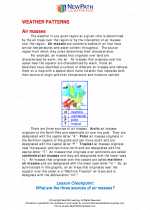 Weather patterns
Weather patterns  Worksheet/Answer key
Worksheet/Answer key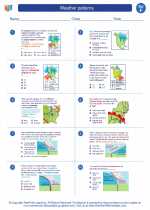 Weather patterns
Weather patterns  Worksheet/Answer key
Worksheet/Answer key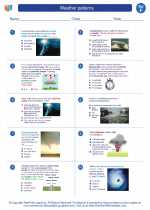 Weather patterns
Weather patterns  Worksheet/Answer key
Worksheet/Answer key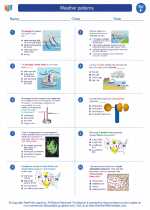 Weather patterns
Weather patterns  Vocabulary/Answer key
Vocabulary/Answer key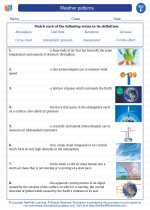 Weather patterns
Weather patterns  Vocabulary/Answer key
Vocabulary/Answer key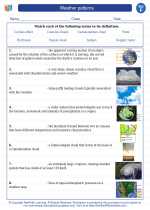 Weather patterns
Weather patterns  Vocabulary/Answer key
Vocabulary/Answer key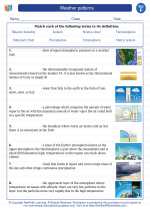 Weather patterns
Weather patterns  Vocabulary/Answer key
Vocabulary/Answer key Weather patterns
Weather patterns 

 Worksheet/Answer key
Worksheet/Answer key
 Worksheet/Answer key
Worksheet/Answer key
 Worksheet/Answer key
Worksheet/Answer key
 Vocabulary/Answer key
Vocabulary/Answer key
 Vocabulary/Answer key
Vocabulary/Answer key
 Vocabulary/Answer key
Vocabulary/Answer key
 Vocabulary/Answer key
Vocabulary/Answer key

The resources above cover the following skills:
EARTH AND SPACE SCIENCE
Earth’s Systems
Integrate qualitative scientific and technical information (e.g., weather maps; diagrams; other visualizations, including radar and computer simulations) to support the claim that motions and complex interactions of air masses result in changes in weather conditions.